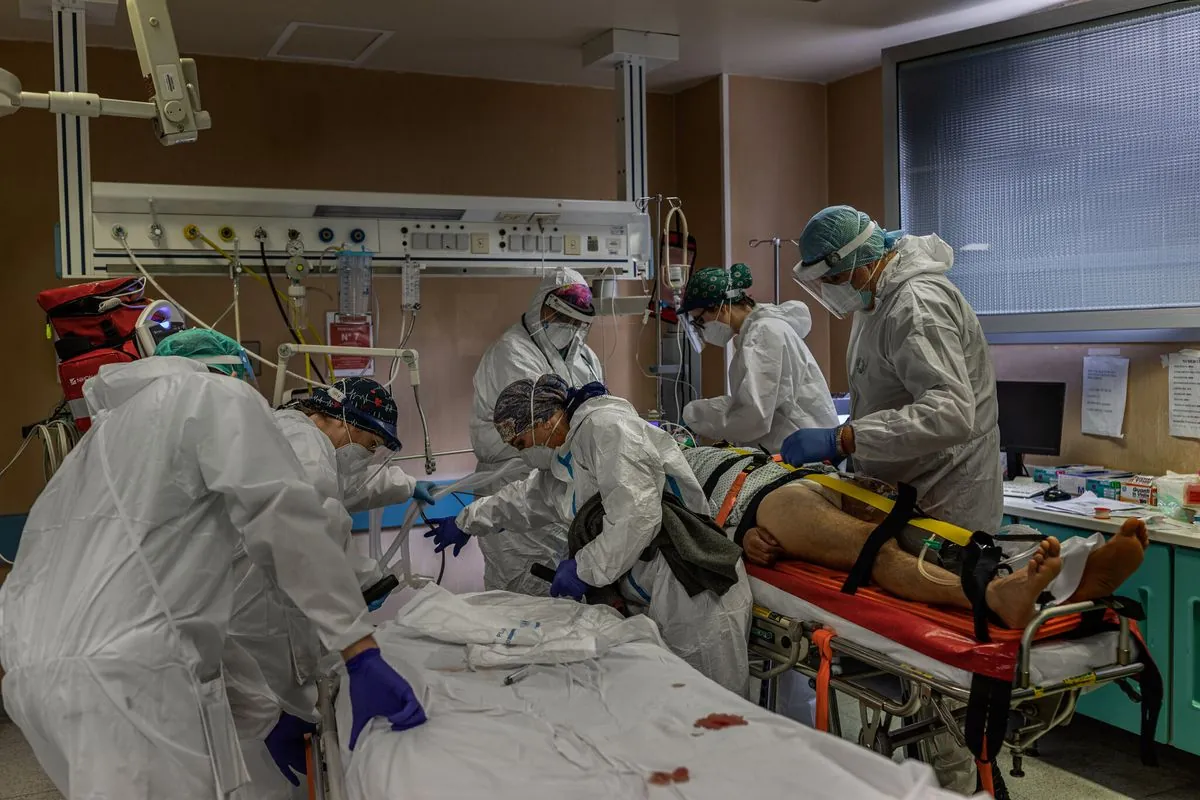In a concerning development for Italy's healthcare system, medical professionals are urging the government to deploy military personnel to safeguard public hospitals. This request comes in response to a series of violent incidents targeting doctors and nurses, highlighting the growing risks faced by healthcare workers in the country.
The situation reached a critical point last week in Foggia, southern Italy, where medical staff were forced to barricade themselves in a room to escape angry relatives of a patient who died during surgery. This incident, along with two subsequent attacks at the same hospital, has sparked outrage and calls for immediate action.
Barbara Mangiacavalli, head of the national federation of nurses, emphasized the need for a strong response:
"We want zero tolerance in hospitals ... We want the army to let both citizens and doctors know that they are protected"
The demand for military presence in hospitals underscores the severity of the situation. Italy's healthcare system, ranked 2nd globally by the World Health Organization, is facing unprecedented challenges. Despite its high standing, the system is grappling with staff shortages, regional disparities, and the aftermath of the COVID-19 pandemic.
Filippo Anelli, president of Italy's national federation of doctors, has joined the call for army protection and suggested using EU post-COVID funds to enhance hospital security. This proposal comes as the country works to address long-standing issues in its healthcare system, including an aging population and the need for improved efficiency.
The gravity of the situation is reflected in alarming statistics: over 16,000 attacks on health workers were reported in 2023. This trend is contributing to a healthcare brain drain, as professionals seek safer working environments abroad.
In response to the crisis, Senator Ignazio Zullo of the Brothers of Italy party has proposed legislation to exclude individuals who assault medical staff from free hospital treatment for three years. This measure has gained support from some doctors' associations, reflecting the desperate search for solutions.
As Italy grapples with these challenges, it's worth noting that the country's healthcare system, established in 1978, is deeply rooted in the constitution, which recognizes health as a fundamental right. The current crisis threatens to undermine the system's achievements, including one of the world's highest life expectancies and a strong pharmaceutical industry.
The government, led by Prime Minister Giorgia Meloni, now faces the complex task of addressing immediate safety concerns while tackling broader issues such as staff shortages, low pay, and public spending constraints. As hospital doctors plan a protest in Foggia on September 16, 2024, the pressure for comprehensive reform continues to mount.
